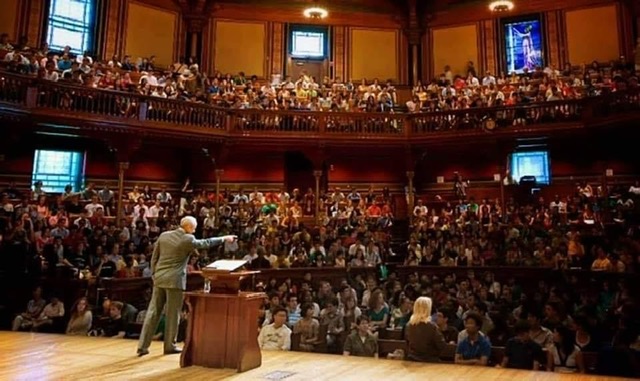WHAT WOULD YOU DO?
Kicked out of the university lecture
Subject: Legal studies.
First lecture.
The professor enters the lecture hall.He looks around.
“You there in the 8th row. Can you tell me your name?” he asks a student.
“My name is Sandra” says a voice.
The professor asks her, “Please leave my lecture hall. I don’t want to see you in my lecture.”
Everyone is quiet. The student is irritated, slowly packs her things and stands up.
“Faster please” she is asked.
She doesn’t dare to say anything and leaves the lecture hall.
The professor keeps looking around.
The participants are scared.
“Why are there laws?” he asks the group.
All quiet. Everyone looks at the others.
“What are laws for?” he asks again.
“Social order” is heard from a row
A student says “To protect a person’s personal rights.”
Another says “So that you can rely on the state.”
The professor is not satisfied.
“Justice” calls out a student.
The professor smiling. She has his attention.
“Thank you very much. Did I behave unfairly towards your classmate earlier?”
Everyone nods.
“Indeed I did. Why didn’t anyone protest?
Why didn’t any of you try to stop me?
Why didn’t you want to prevent this injustice?” he asks.
Nobody answers.
“What you just learned you wouldn’t have understood in 1,000 hours of lectures if you hadn’t lived it. You didn’t say anything just because you weren’t affected yourself. This attitude speaks against you and against life. You think as long as it doesn’t concern you, it’s none of your business. I’m telling you, if you don’t say anything today and don’t bring about justice, then one day you too will experience injustice and no one will stand before you. Justice lives through us all. We have to fight for it.”
“In life and at work, we often live next to each other instead of with each other. We console ourselves that the problems of others are none of our business. We go home and are glad that we were spared. But it’s also about standing up for others. Every day an injustice happens in business, in sports or on the tram. Relying on someone to sort it out is not enough. It is our duty to be there for others. Speaking for others when they cannot.
Do more.

